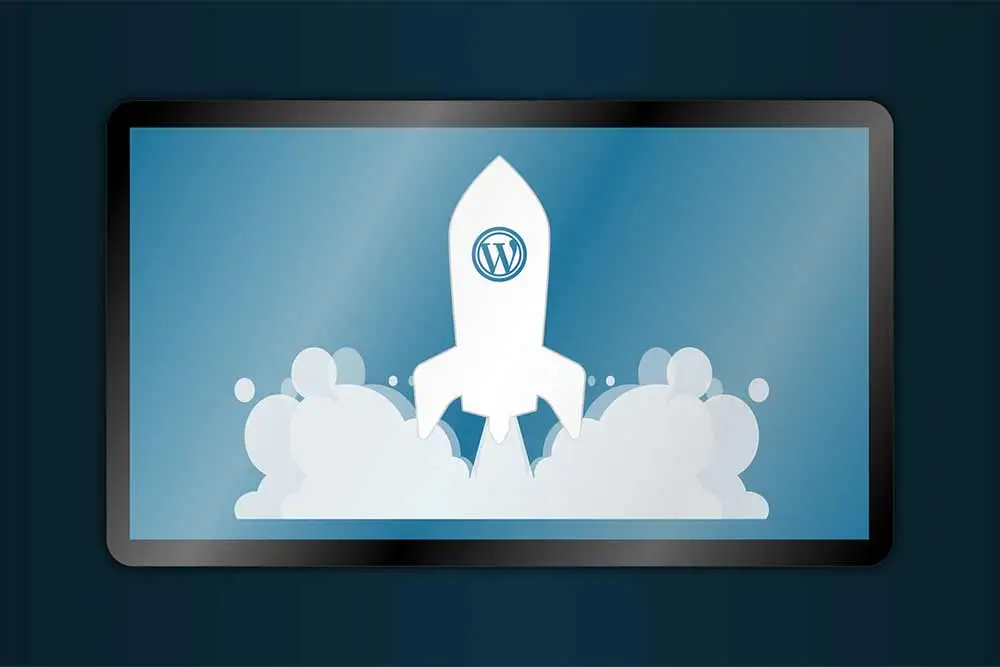
WordPress is a powerful and popular CMS (Content Management System) that accounts for approximately 26+ million websites in use worldwide as of the writing of this post.
That said, WordPress is not all sunshine and roses. One seemingly pervasive complaint by WordPress site owners is that it can be painfully slow to load pages. That not only frustrates those who operate WordPress websites for their businesses, but it can turn off web visitors, who are simply unwilling to wait 6, 7, 8 seconds or more while the page loads in their browser. This of course, can result in fewer leads and ultimately lost sales.
Why is WordPress So Slow?
There could be a number of reasons why your WordPress site is slow to load. We will lay out out some possibilities and solutions that may help you to speed up WordPress site page load speeds. Additionally, there are some WordPress plugins that can help speed up your WordPress website.
WordPress is a Content Management System
When you use your browser to access a website, your browser will send a request to the web server, the server handles the request and sends back a response to the browser. However, unlike a “static” website, WordPress is a Content Management System, or CMS, which utilizes a database to store information and relies upon a programming language called PHP to retrieve and manipulate that data into HTML, which then gets sent to the web browser. There may be numerous database queries that need to be processed which can increase page load times.
How Can A Database Slow Down A Website?
Over time, a database can become “bloated” as more and more information is saved to it and as the WordPress site itself becomes more complex (i.e. adding plugins, images, etc.). This will likely to result in a database that will not run as efficiently…in other words, one that begins to slow down.
How to Speed Up WordPress Database
Optimize your database. Optimizing your database is the process by which you would delete any unnecessary data within it. You can either manually optimize your WordPress database through PhpMyAdmin if you have access to it or you can use a plugin to optimize your WordPress database. Manually optimizing your WP database on a regular basis can be a pain in the neck, so you may be better off using a plugin.
Plugin to Optimize a WordPress Database
WP Optimize is a well-rated, popular plugin used for database optimization.
WordPress Plugins
WordPress plugins can be an awesome way to extend the functionality of a WordPress website. Unfortunately, sometimes using too many plugins can cause issues that may slow down your WordPress site. That’s because many plugins require the use of additional external JavaScript or CSS files to work correctly within your WordPress site. Since each file you add to your WordPress site requires an HTTP request, that means you are adding more additional requests to the server that need to be processed and a response sent back to the browser. If a plugin is not written using best practices, there could be too many requests sent to the server.
Another issue which can slow down WordPress page load speed is plugin incompatibility. If there are plugins which conflict with one another, this can lead to increased page load times as well.
Thus, should try only consider using those WordPress plugins that you feel are essential to the operation of your WordPress website.
Server/Hosting
Choosing the right server can contribute significantly to how fast your WordPress pages load.
It’s likely that the typical small business runs on a Shared Hosting Server. On a shared hosting plan, there may be several hundred websites hosted on the same server. In such as case, these same websites all share the same server resources… memory, CPU, hard drive space and bandwidth. The drawback is that these resources are not shared uniformly, such that any one website (or number of websites) could be consuming most of the server’s resources. That means that the rest of the websites on the same server only get access to the the remaining resources, which can result in significantly degraded performance for those remaining websites.
Therefore, under some circumstances, if you are experiencing painfully slow page load times, it may be worth considering an upgrade to VPS (Virtual Private Server) or even a dedicated server. VPS is still a shared hosting environment, however, there typically are far fewer websites (i.e. 15-20) and each website is allocated its own set of resources (from the total amount available), which cannot be used or affected by other websites on the same server. With a dedicated server, your website is the only one on it which has access to all of its resources.
Web Page Size
The average web page size is about 3MB (the page size for Prominent Web Design’s home page is just a scant 865KB). The goal should always be to minimize page size, so the smaller the better, but this can be difficult to do with WordPress. Thus, if your web page is much more than that, you may be contributing to slower page load speeds. That is because a browser downloads all “assets” to render the web page, so if your web page has many large images to download and other complex DOM elements, it will noticeably increase your page load time.
So what can you do? Reduce the file sizes of all assets, including images; configure your web server to enable compression, minify resources (HTML, JavaScript and CSS), optimize delivery of resources by inlining lesser amounts of CSS and JavaScript needed to render content above the fold and minimize the number of HTTP requests by combining CSS and JavaScript external files.